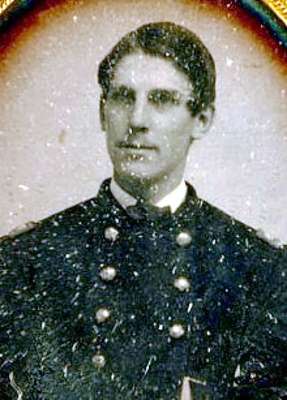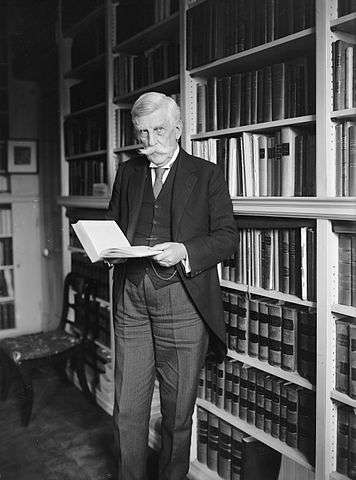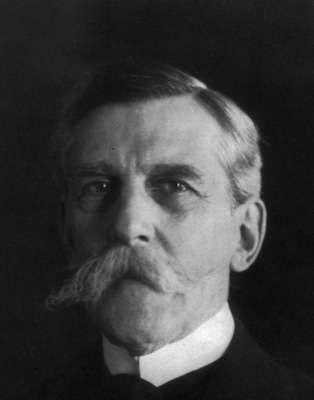Oliver Wendell Holmes, Jr., was the famous son of a famous father, determined throughout his lifetime to make his mark.
His parents encouraged him to succeed from an early age. As a small boy, Wendell Holmes earned an extra helping of marmalade at breakfast if he said something bright.
He grew up to become one of the greatest judges in U.S. history.
Oliver Wendell Holmes Jr.
Another Supreme Court justice, Charles Evans Hughes, once said Holmes lived “a rarely beautiful life.” He traveled widely, wrote scholarly articles, flirted with English noblewomen and lived in the grand manner. He also influenced the course of the law from his high perch on the U.S. Supreme Court.
Oliver Wendell Holmes was born in Boston on March 8, 1841, four days after Andrew Jackson assumed the presidency of the United States. He died in 1935, two years after Franklin D. Roosevelt took office. He had influenced the president’s New Deal reformers.
He grew up in a New England with unquestioned cultural dominance in America. His father, Oliver Wendell Holmes, Sr., belonged to New England’s Brahmin (a term he coined) class. A physician, an author and a poet, the senior Holmes at 21 published Old Ironsides, the poem that inspired the preservation of the U.S.S. Constitution.

At the outbreak of the Civil War, young Holmes left his studies at Harvard to enlist in the Union Army. He was wounded three times: first at Ball’s Bluff, then at Antietam, finally at Chancellorsville . His father spent days looking for him after Antietam, and wrote about it in an Atlantic essay, My Hunt After the Captain. After Chancellorsville he went home to Boston and got promoted to brevet colonel.
Judge Holmes
The tall, handsome Civil War veteran returned to Harvard to study law. He married a childhood friend, Fanny Bowditch Dixwell, and joined the law firm of Shattuck, Homes & Munroe. At 39 he published a book called The Common Law, widely acknowledged as the greatest book written on the subject.
 Holmes’ career as a judge began when he was appointed to the Massachusetts Supreme Judicial Court in 1882. During his years in Boston he traveled to London, where he acted the ladies’ man during the spring and summer social season. His wife had no interest in society and devoted herself to embroidery. Whether he had an adulterous affair is unknown, but his marriage was reported to be happy despite his roving eye.
Holmes’ career as a judge began when he was appointed to the Massachusetts Supreme Judicial Court in 1882. During his years in Boston he traveled to London, where he acted the ladies’ man during the spring and summer social season. His wife had no interest in society and devoted herself to embroidery. Whether he had an adulterous affair is unknown, but his marriage was reported to be happy despite his roving eye.
In 1902, President Theodore Roosevelt appointed Holmes to the U.S. Supreme Court. Roosevelt had admired his willingness to challenge the rich and powerful. Wrote Roosevelt to his confidante Henry Cabot Lodge:
The ablest lawyers and greatest judges are men whose past has naturally brought them into close relationship with the wealthiest and most powerful clients and I am glad when I can find a judge who has been able to preserve his aloofness of mind so as to keep his broad humanity of feeling and his sympathy for the class from which he has not drawn clients.
Roosevelt would later claim the appointment was the biggest mistake of his life because he and Holmes disagreed about the Sherman Antitrust Act.
The Great Dissenter
On the high court Holmes was known as the “Great Dissenter” for his frequent disagreements with the rest of the court. In 1905, he objected to the court lifting a limit on bakers’ 60-hour work week in Lochner v. New York. He also advocated for the constitutional right to free speech and letting states find progressive solutions to society’s problems.
He was known for pithy aphorisms such as:
Taxes are what we pay for civilized society.
A page of history is worth a volume of logic.
Even a dog distinguishes between being stumbled over and being kicked.
He finally retired at 90, after his colleagues suggested it was time.
Oliver Wendell Holmes, Jr., died March 6, 1841, two days short of his 94th birthday.
The New York Times praised him in his obituary:
In his years on the Supreme Court bench he had done more to mold the texture of the Constitution than any man since John Marshall revealed to the American people what their new Constitution might imply.
His summer home in Beverly, Mass., is a National Historic Landmark.
This story updated in 2022.


9 comments
Thank you for this article. We need more of the reminders of these great in our history.
He also argued that laws that kept blacks in peonage were not unconstitutional, and infamously upheld a mandatory sterilization law, declaring “three generations of imbeciles are enough.”
[…] young bachelors in the 1860s, with suitors that included future Supreme Court Justice Oliver Wendell Holmes Jr., John Hay, secretary to President Lincoln, and the president’s son Robert […]
[…] year, Supreme Court Justice Oliver Wendell Holmes, Jr., delivered a poem at Woodstock about his ancestors, many of whom were buried nearby. He came […]
[…] young bachelors in the 1860s, with suitors that included future Supreme Court Justice Oliver Wendell Holmes Jr., John Hay, secretary to President Lincoln, and the president’s son Robert […]
[…] Holmes was a lieutenant in the Harvard brigade – the 20th Massachusetts Volunteer Infantry – so named because it drew all its officers and many of its members from Harvard University. Holmes had just graduated when he departed Boston to fight for the great cause of his day – the abolition of slavery. […]
[…] those words, the invention known as the telegraph was first put into use in a transmission from the Supreme Court chambers in Washington, D.C. to a Baltimore railroad […]
[…] Oliver Wendell Holmes, Jr., later a Supreme Court justice, played the ‘widow’ in A Gentleman and Lady in a Peculiarly Perplexing Predicament in 1865. Holmes had returned to Harvard from the Civil War, where he was wounded. In the risque play, a man and a woman are forced to share a room in an inn. […]
[…] his Roseland Cottage. The event featured many, many speeches; so many, that Supreme Court Justice Oliver Wendell Holmes tried to get out of going in 1877. Bowen didn't drink, and President Ulysses S. Grant had to sneak […]
Comments are closed.